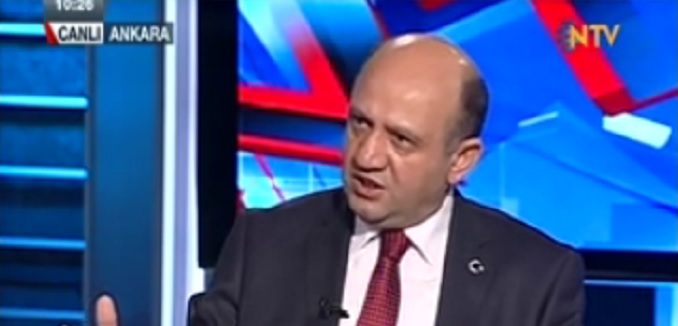A recent announcement from a top Turkish official – in which Science, Industry, and Technology Minister Fikri Isik declared that Ankara will begin indigenously producing weapons in order to circumvent potential import restrictions from supplier countries – has left “Western diplomats and military officials… puzzled” over Turkey’s intentions, according to a report on the speech by Hurriyet Daily News.
In a recent speech, Science, Industry and Technology Minister Fikri Işık said Turkey would launch a “national” factory this year to produce its own “warheads, airplane bombs and plastic explosives.”
He said the new factory would end Turkey’s dependence on foreign suppliers of this type of ammunition.The proposed production facility would be located adjacent to another ammunition factory operated by state-controlled weapons manufacturer MKE in the Central Anatolian province of Kırıkkale. It will produce 600 tons of plastic explosives, Işık said.
The impetus for the new facility, Isik explained, came from Turkish concerns that the Missile Technology Control Regime (MTCR) – which imposes import and export conditions on certain materials, and to which Ankara has been a party since 1997 – makes it more difficult for the Turks to build the weapons that they want. A NATO defense attache based in Ankara told Hurriyet that “the minister’s statement is not clear for many reasons” and emphasized that “if Turkey is planning to bypass the MTCR… that would be worrying.”
A Brussels-based NATO ambassador worried that “we are not sure what kind of ammunition Turkey intends to produce at this new factory, and why it hopes to bypass the MTCR.” Hurriyet also spoke with a Turkey specialist who noted that Isik’s remarks “can be interpreted in a way that Turkey may be targeting to exceed the limits specified in the treaty.” Prime Minister Recep Tayyip Erdogan and his Justice and Development Party (AKP) have increasingly found themselves at odds with counterparts in fellow NATO countries.
Plans to purchase missile defense assets from a Chinese company – the integration of which has been described as the equivalent of introducing a hostile virus into NATO’s command and control infrastructure – have progressed despite vociferous criticism from top NATO officials. AKP officials have been unreceptive to Western calls to put off the deal, and last October Erdogan lashed out at critics of the sale. Top executives from European and U.S. defense firms this month traveled to lobby Turkish firms against the move, explaining that it would severely constrain future security cooperation.
[Photo: Fikri Isik / YouTube]




